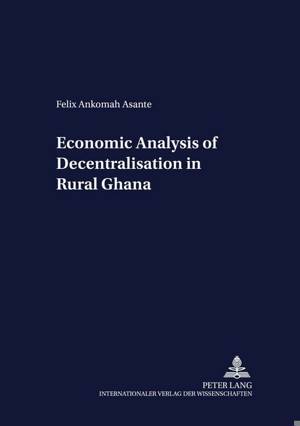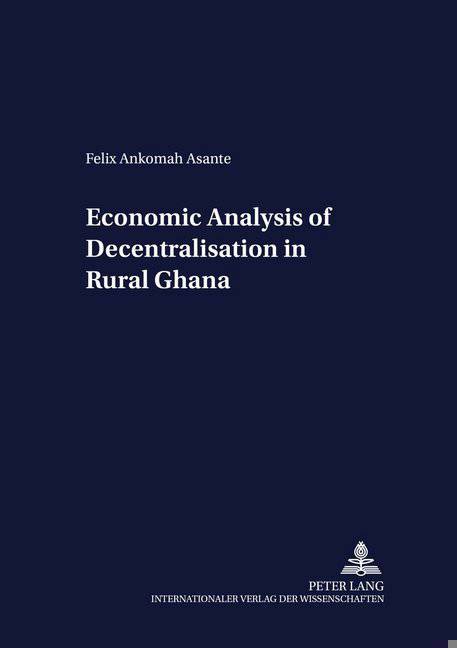
- Afhalen na 1 uur in een winkel met voorraad
- Gratis thuislevering in België vanaf € 30
- Ruim aanbod met 7 miljoen producten
- Afhalen na 1 uur in een winkel met voorraad
- Gratis thuislevering in België vanaf € 30
- Ruim aanbod met 7 miljoen producten
Zoeken
€ 51,45
+ 102 punten
Omschrijving
Many countries around the world have been attempting - for several reasons and with various degrees of intention and success - to create or strengthen local governments in recent years. Ghana is one of these countries and since 1998 has been going through a decentralisation process, that is moving decision-making from the national (center) to the district and community levels - a bottom up approach. Many rationales for decentralisation may be discerned in the literature and in practice. The most common theoretical rationales for decentralisation are: to attain allocative efficiency in the face of different local preferences for public goods and services and equity and distributional concerns - poverty reduction. In this context, this study performs an economic analysis of decentralisation in rural Ghana specifically addressing the following issues: has the decentralisation helped in the delivery of public goods and services and to what extent has the access to public goods and services helped to reduce poverty? Education, health and water were the public goods and services studied. Quantitative and qualitative techniques are used to address theses issues.
Specificaties
Betrokkenen
- Auteur(s):
- Uitgeverij:
Inhoud
- Aantal bladzijden:
- 150
- Taal:
- Engels
- Reeks:
- Reeksnummer:
- nr. 32
Eigenschappen
- Productcode (EAN):
- 9783631503553
- Verschijningsdatum:
- 10/02/2003
- Uitvoering:
- Paperback
- Formaat:
- Trade paperback (VS)
- Afmetingen:
- 148 mm x 210 mm
- Gewicht:
- 239 g

Alleen bij Standaard Boekhandel
+ 102 punten op je klantenkaart van Standaard Boekhandel
Beoordelingen
We publiceren alleen reviews die voldoen aan de voorwaarden voor reviews. Bekijk onze voorwaarden voor reviews.











